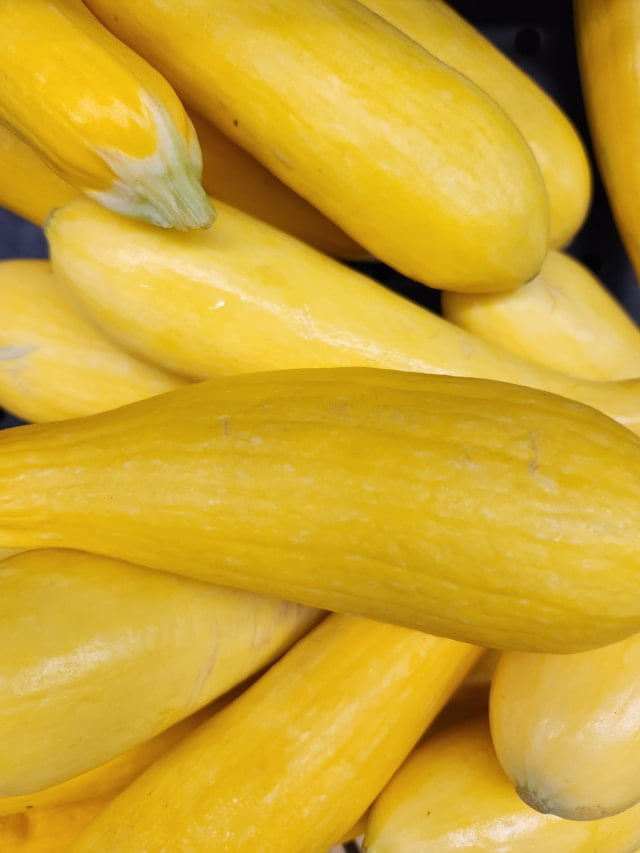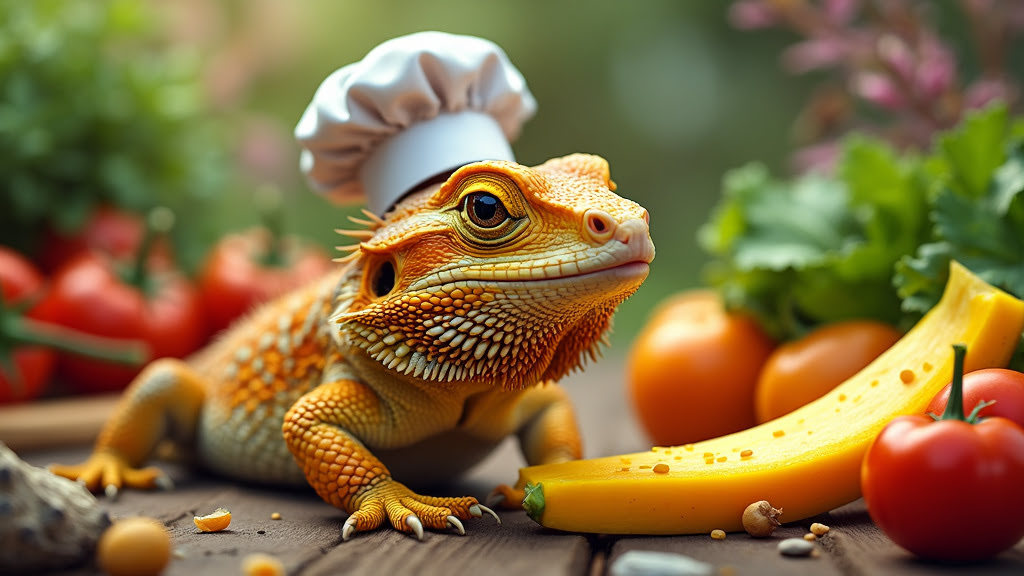Welcome to Dug’s Bugs! Here, we love learning about and caring for our cool, scaly pets. Today, we’re going to answer a fun question: Can bearded dragons safely eat yellow squash? Let’s find out!
Understanding Bearded Dragon Dietary Needs
Nutritional Requirements
Bearded dragons, those cute little lizards, need a special diet to stay healthy. They need protein, calcium, vitamins, and minerals. Imagine your beardie wearing a tiny chef hat and enjoying a rainbow of foods!
So, what should they eat? A mix of greens, vegetables, fruits, and insects is best. They aren’t picky, but getting the right balance will keep them happy and healthy.
Safe and Unsafe Foods
Feeding your bearded dragon is like solving a puzzle. Some veggies and fruits are great, but others are bad. For example, leafy greens like collard and mustard greens are fantastic, but don’t give them avocado or rhubarb—they’re not safe!
Yellow Squash as a Food Option
Nutritional Profile of Yellow Squash
Yellow squash is like a sunny little veggie! It has vitamin A, vitamin C, and lots of fiber. It’s gentle on your dragon’s tummy. Compared to other veggies, yellow squash is full of good stuff.

Health Benefits
Feeding yellow squash to your bearded dragon can be really good for them. The fiber helps with digestion, and vitamins A and C boost their immune system. Plus, it has plenty of water to keep them hydrated. It’s like a spa day for your dragon!
At Dug’s Bugs, our bearded dragons love yellow squash and stay healthy and happy when they eat it.
Potential Risks
But beware, just like eating too much candy, there can be risks. Too much yellow squash can cause tummy troubles and mess up their diet. Imagine your little dragon’s tummy grumbling in disapproval. Moderation is key!
Proper Preparation and Feeding Guidelines
How to Prepare Yellow Squash for Bearded Dragons
Ready to play chef? First, wash the yellow squash well. Clean food is important for your pet. Then, slice it into small pieces. Should it be cooked or raw? Both are fine, but raw is crunchier and has more nutrients.
How much should you give? A few small pieces once or twice a week is perfect. Think of it as a tasty side dish.
Incorporating Yellow Squash into a Balanced Diet
Making a balanced diet for your bearded dragon is like painting a picture. You want all the colors to blend beautifully. Here’s an example diet plan:
- Monday: Collard greens, a few crickets
- Wednesday: Yellow squash pieces, mealworms
- Friday: Mustard greens, a couple of blueberries
- Sunday: Turnip greens, a few dubia roaches
Mix and rotate veggies to keep things exciting. The goal is to give them a diet that feels like a dream garden!
Monitoring Your Bearded Dragon’s Health
Watch closely for any changes in your pet’s health. Normal poops and active behavior are good signs. If something seems wrong, check with a vet. They’re the experts in keeping our dragons happy!
Frequently Asked Questions (FAQs)
Can baby bearded dragons eat yellow squash?
Yes, but in moderation. Baby dragons can enjoy finely chopped yellow squash. Remember, they need a variety of foods!
How often should I feed yellow squash to my bearded dragon?
Yellow squash can be given as a treat about once or twice a week. This helps keep their diet balanced.
What other veggies are similar to yellow squash in nutrition?
Veggies like zucchini and bell peppers have similar nutrients. They’re great for switching things up and keeping your dragon’s diet varied.
Conclusion
Feeding yellow squash to your bearded dragon offers health benefits and new flavors. It’s healthy but should be given in moderation to avoid tummy troubles. With balanced servings and watching their health, yellow squash can be a great addition to their diet.
Remember: A varied diet leads to a happy dragon. Think of them as little food explorers!
At Dug’s Bugs, we love hearing from fellow pet lovers! Have you fed yellow squash to your bearded dragon? Share your experiences in the comments below. Don’t forget to subscribe for more tips and join our community on social media for even more fun interactions.
References
We’ve shared lots of helpful info, but always check with a vet for any specific concerns about your bearded dragon’s diet. They’re the pros!




